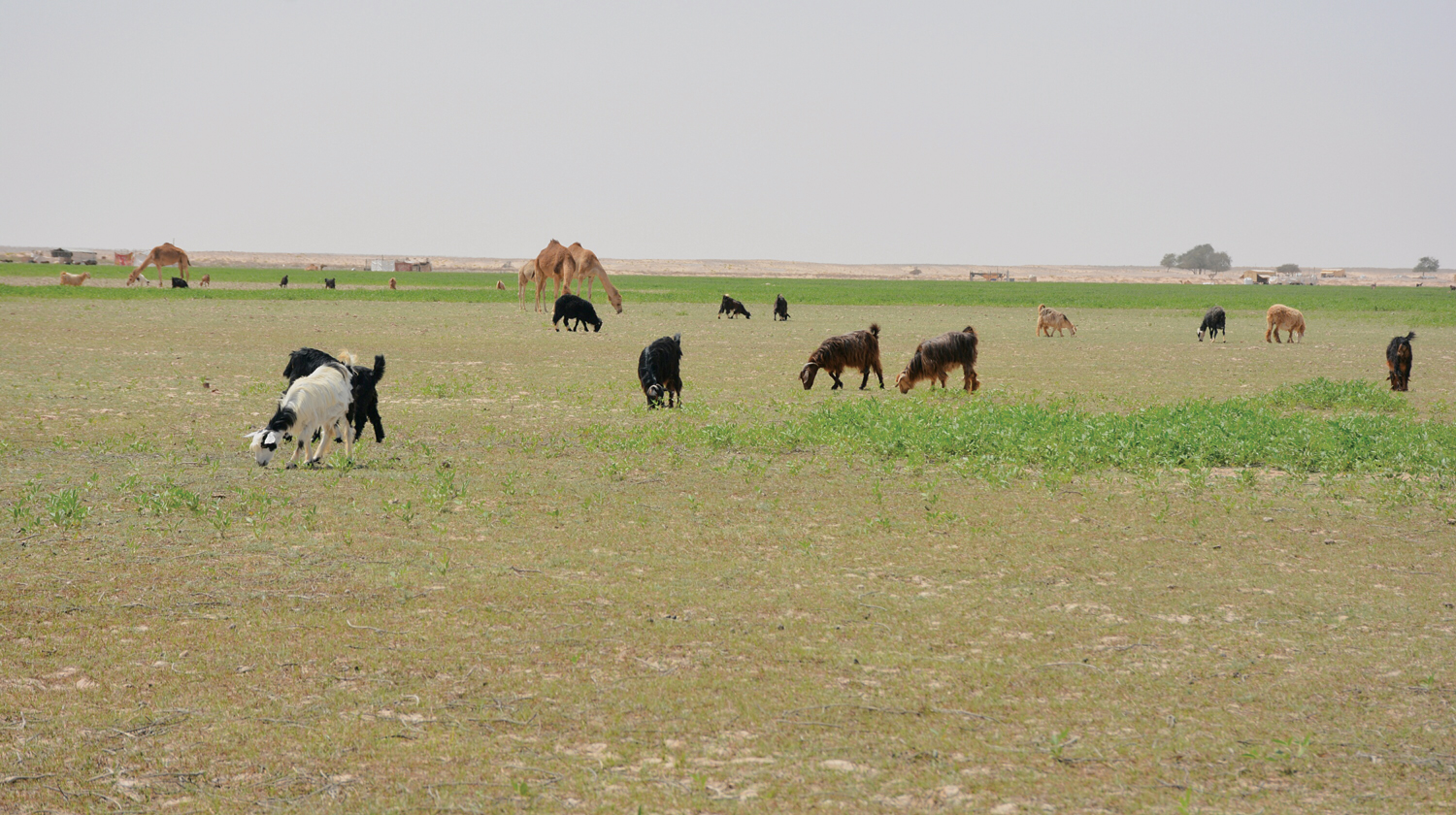

Mahout: The Qua al-Juba area in the Wilayat of Mahout in the Governorate of Al Wusta is one of the beautiful tourist destinations that visitors from various governorates of the Sultanate visit to enjoy greenery, especially when it rains and wadis overflow. The area is characterised by the presence of the Al Saadi tree, which forms green pastures for cattle and camels. The area is frequented by visitors from inside and outside the Sultanate for recreation and for picnic. There are a lot of plants in the area, and some exist for a period of approximately 10 months because they grow in the plains and plateaus.
The owners of camels and livestock move wherever they find grass and water, with the aim of changing grazing places and searching for new herbs and plants for their camels and livestock. It reduces the burden of buying feed, such as alfalfa and barley for their cattle.
The Wilayat of Mahout is usually affected by the depressions experienced by the Sultanate at different times of the year. The weather turns cold and cloudy, which attracts more visitors to Qua al-Juba area to enjoy the beautiful weather. The inhabitants of the Wilayat of Mahout welcome the rains in the Wilayat of Al Mudhaibi. The people come to see the overflowing wadis, which lasts for several days until it reaches the fertile “Qua al-Juba” area, which is the only place in the wilayat where one can see different plants, the most prominent of them is Al Saadi trees.
Al Saadi is also present in “Qua al-Juba” area in case of rain falls on Al Hajar Mountains, which results in the overflowing of Wadi Halfin in the Governorate of Al Dakhiliyah or some other wadis.
The authorities maintain this area by cleaning it continuously and establishing guidelines for visitors and tourists.
It is worth noting that the Wilayat of Mahout has many tourist areas. It enjoys cold weather during the summer and warm during the winter, which allows the tourist to see natural Bedouin life and enjoy their food, like Qurus (type of local bread) with meat and camel or sheep milk and to listen to traditional music and songs, including Al Wannah, Taghroud and Tariq. — ONA
Oman Observer is now on the WhatsApp channel. Click here



